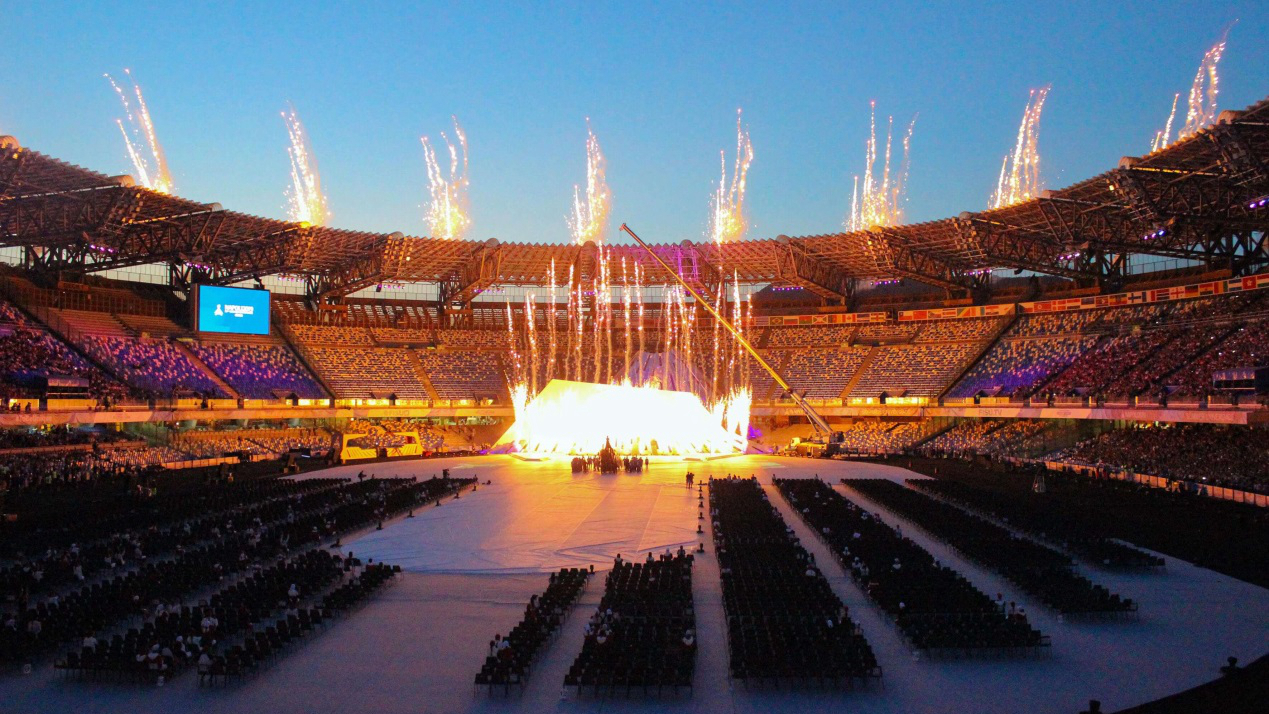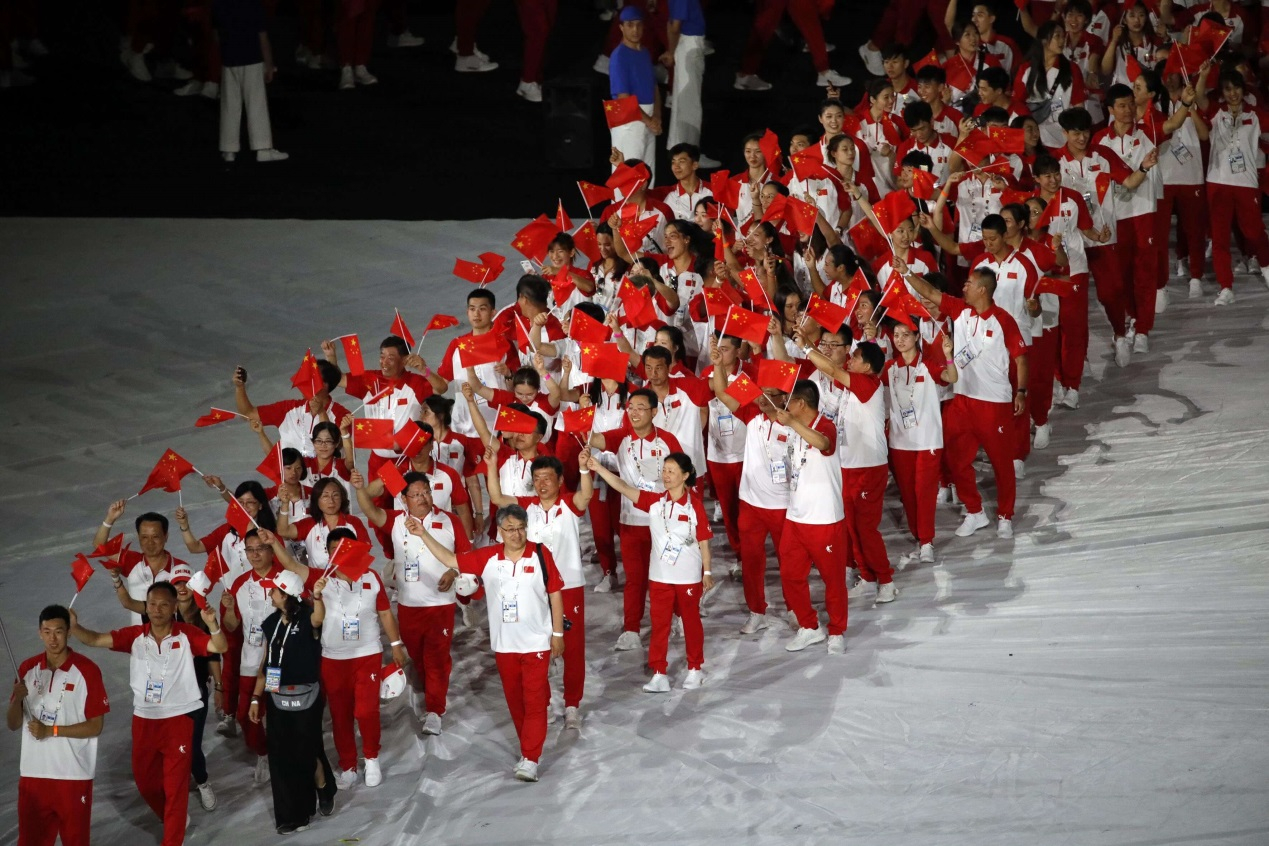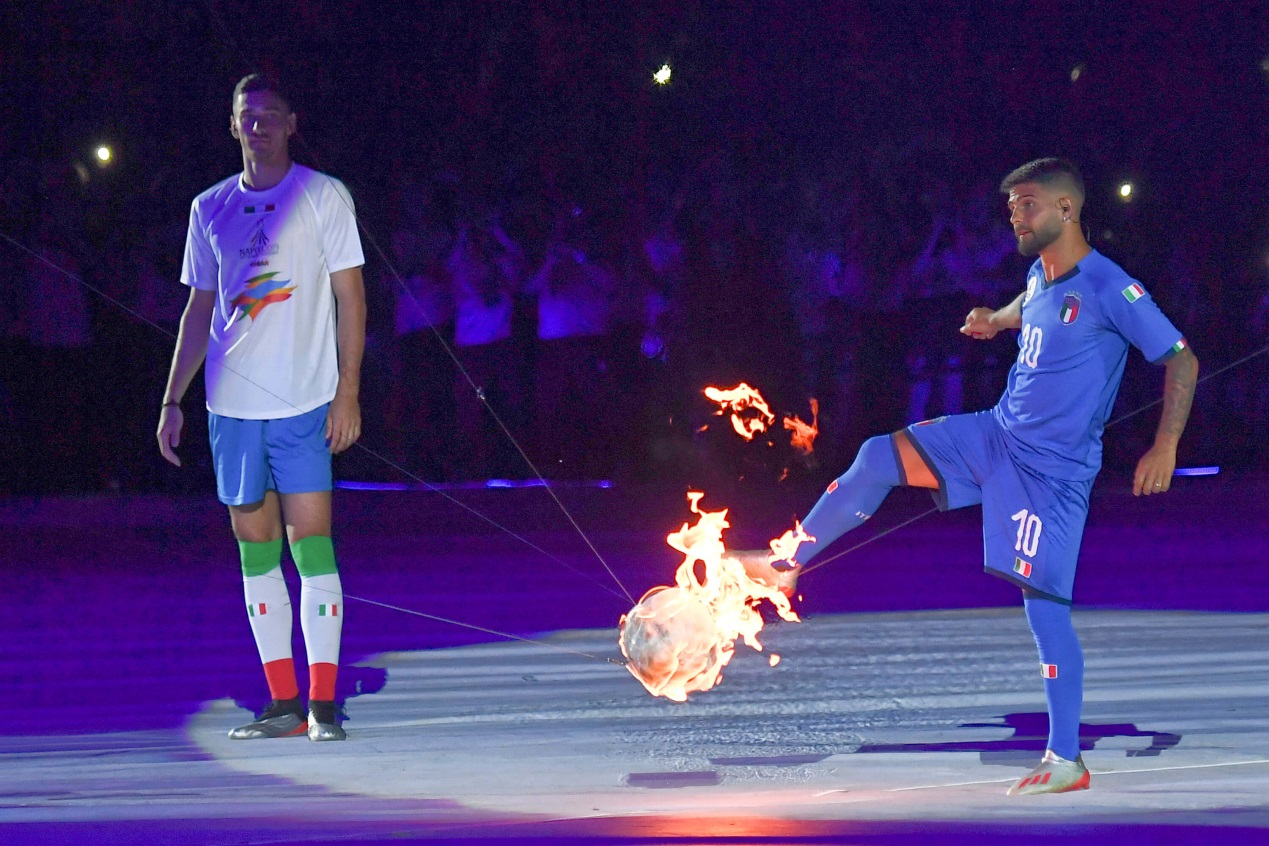

The much awaited 30th edition of the Summer Universiade got off to a grand start on Wednesday as Italian President Sergio Mattarella declared the games open at an opening ceremony that was a feast of music, art, culture and sport.
The Universiade Cauldron was lit at the San Paolo stadium by Neapolitan football hero Lorenzo Insigne with more than 6,000 student-athletes from over 100 countries erupting in celebration. All these young and gung ho athletes are ready for a multi-sport spectacle that may define their sporting careers.
The "U" of the Universiade, which also represented the Napoli 2019 slogan #ToBeUnique, was a constant motif throughout the ceremony as the evening began with the appearance of the mascot Partenope, the mythical siren or mermaid who appeared from the sky and floated gracefully onto the sea.
The colorfully decorated stadium had a glistening float representing waves and also a replica of Mount Vesuvius glowing in shades of amber and red as the organizers captured the very essence of Napoli.

The Chinese contingent cheering to the crowd during the opening ceremony of the 30th Summer Universiade in Napoli on Wednesday night. /Courtesy: FISU
The Athletes Parade commenced with large delegations like China, Australia, the U.S. and Japan receiving a thunderous welcome from the crowd. There was a special welcome in store for Argentina as the Latin American country's former soccer icon Diego Maradona had a memorable stint at the eponymous Serie A club from the city.
The gala event saw the performances by 16-year-old singer Carmen Pierri, winner of the Italian edition of "The Voice", and also witnessed a slew of celebrity appearances that included popular Italian singer-songwriter Malika Ayane, Paralympic fencing champion Beatrice "Bebe" Vio and three-time Olympic diving champion Klaus Dibiasi among many others.
The formal part of the proceedings began with International University Sports Federation (FISU) President Oleg Matytsin striking a chord with the locals by reminding them of how closely Italian sport is intertwined with university sport.
In his inaugural address Matytsin said, "It is here, in Italy that the Universiade started 60 years ago. It is from here that our movement started and then spread all around the world. It has become stronger because the lessons of sport have proven to be as powerful as anything we learn in the classroom."

Italian footballer Lorenzo Insigne (R) lights up the cauldron by kicking a ball with fire during the opening ceremony at San Paolo Stadium in Napoli. /Courtesy: FISU
"Not all of you will finish with a medal, but please remember that one victory is available to all of you - the chance to leave Napoli as a better person," the FISU chief mentioned in his message to the participating athletes.
International Olympic Committee (IOC) President Thomas Bach couldn't make it to the grand event but in his video message to the athletes, he said "always compete with the Olympic spirit of friendship and respect. Perhaps Napoli will be the beginning of your journey to the Olympic Games in Tokyo 2020."
Subsequently, the President of Italy, Mattarella, officially declared the Universiade open as the FISU flag was carried in with great pomp and splendor by eight athletes, academics and researchers.
Much to the surprise of the crowd, homegrown football stars Alex Meret, goalkeeper of the Serie A club Napoli and his captain, Italian international Lorenzo Insigne took the center stage. Insigne kicked a ball that burst into flames before soaring off towards Mount Vesuvius as the symbolic lighting of the Universiade Cauldron took place.
The final flourish came from Andrea Bocelli, arguably the most famous tenor in the world today, whose melodious voice enthralled the spectators and resonated in Stadio San Paolo as the clock struck midnight.

Copyright © 2018 CGTN. Beijing ICP prepared NO.16065310-3
Copyright © 2018 CGTN. Beijing ICP prepared NO.16065310-3